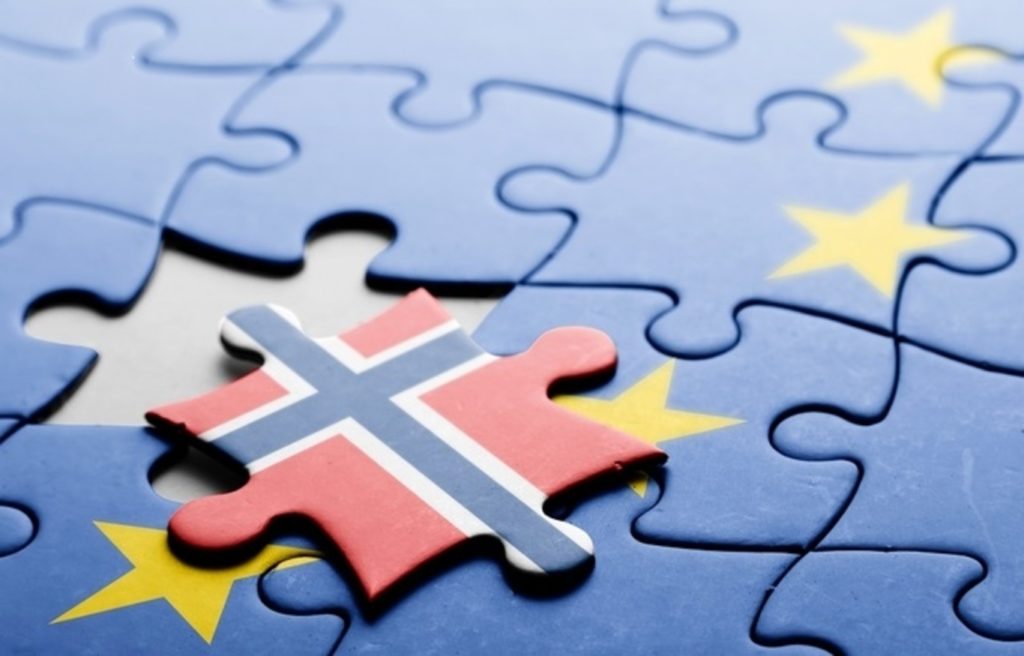The Norwegian Model
The Scandinavian country is at the same time a ray of
hope and a crushing reality for the UK’s Brexit plans

As another round of Brexit negotiations goes by, both sides point at Norway as a model for Westminster to stay out of the EU. It is somehow poetic that 50 years after they applied together for the EU membership, they might reunite on the same side of the fence once again. On the one hand, Norway is regarded as the perfect example of being successful without being part of the Union. On the other hand, the country’s case also shows how little say the UK will have in the political debate after the divorce, even if it remained a member of the single market.

While this debate rages outside Norwegian borders, one wonders how political life works in a country that is outside of the EU, yet is part of the European Economic Area. Norway has topped nearly every international chart on the quality of life and governance and has had, in general, a good progressive management of the country for years. So, what are the key issues discussed during an election round in one of the wealthiest and most stable countries in the world?
As it is expected, the base for the discussion is similar to the rest of the West: how to keep a functioning welfare state with an aging population; climate change; immigration as well as international affairs. The privileged role of the oil sector in Norway’s economy makes the discussion exceptional because it is still unclear how they can diversify the economy in order to prepare for the bad times when oil reserves will, eventually, run out. The country has another treasure that needs to be preserved: the fishing industry. The sector also poses a problem in for the country’s relation with the EU, because in case of a full EU membership, the Norwegian would have to open these waters to fellow European trawlers, which would greatly reduce Norwegian exports. On top of this, the regulation against overfishing are stricter in Norwegian seas and as such, they fear that opening the market to the rest of Europe could cause a lack of seafood.
The adoption of the Common Agriculture Policy has been another obstacle to the EU membership. Norway’s terrain is mountainous, the ground is frozen for a good part of the year, there’s little sun compared to southern Europe and the soil itself is not the most fertile. To alleviate some of these problems, the government has been subsidizing its internal farming industry and putting high tolls on foreign imports. In a united European framework, they could naturally buy food from the common internal market, but it is also clear that food independence is a sensitive topic, especially if coupled with the potential lack of seafood to compensate the agricultural output. Since it’s unlikely that the EU would make an exception for this two topic, the possibility of a membership in the near future seems far-fetched, at least until it has access to the oil reserves.

The only feasible option for Norway is to remain in the EEA and keep lobbying the decision-making process, which can be frustrating and certainly not ideal. With the membership (which was rejected twice by referendum in the past) out of the discussion for the moment and with elections coming soon, the ruling party must carefully balance his European interests with the national ones if it wants to maintain this position that, from the outside, seems to grant them the best of both worlds.
Where does this leave the UK? While it is unclear which direction Westminster will take in the negotiations, what we know is that Norway is carefully monitoring the situation (the UK is one of their biggest trading partners) and as a result, the country’s European affairs Minister Elisabeth Vik Aspaker, has recently stated that a hypothetical re-entrance of the UK in the European Free Trade Association may not be in Norway’s interest, since it would disturb the balance of the existing members. A UK bid must be unanimously approved and as such it would enable the possibility of a Norwegian veto. Another spine to account for in an already thorny negotiation process for Britain.
